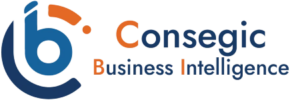The ultra-thin glass market is experiencing rapid growth and is poised to expand further in the coming years. Ultra-thin glass refers to a specialized form of glass that has a thickness ranging from a few micrometers to a fraction of a millimeter. It offers unique properties and is utilized in various applications across different industries.
One of the key factors driving the ultra-thin glass market is the increasing demand for lightweight and flexible electronic devices. Ultra-thin glass is used in the manufacturing of displays for smartphones, tablets, laptops, and wearable devices. It provides excellent transparency, high optical quality, and durability, making it an ideal choice for touchscreens and other display technologies. Additionally, ultra-thin glass can be bent, curved, and shaped to fit the form factor of flexible and foldable devices, enhancing their design and functionality.
Moreover, the automotive industry is a significant consumer of ultra-thin glass. It is used in the production of thin and lightweight automotive glass panels, such as sunroofs, instrument panels, and heads-up displays. Ultra-thin glass offers enhanced safety, improved visibility, and fuel efficiency benefits. It also contributes to the overall weight reduction of vehicles, which is crucial for achieving higher fuel economy and reducing carbon emissions.
Additionally, the solar energy sector is driving the demand for ultra-thin glass. It is used as a cover glass for solar panels, helping to protect the photovoltaic cells and improve their efficiency. Ultra-thin glass provides high transparency to sunlight, allowing maximum light absorption while maintaining the structural integrity of the solar modules. Its lightweight nature also reduces the overall weight of solar panels, facilitating easier installation and transportation.
Furthermore, the healthcare and medical industry is utilizing ultra-thin glass for various applications. It is used in the manufacturing of medical devices, such as diagnostic tools, sensors, and electrodes. Ultra-thin glass provides excellent biocompatibility, chemical resistance, and sterilizability, making it suitable for use in medical environments. It also offers high precision and transparency, enabling accurate measurements and imaging in medical devices.
In recent years, there has been a growing emphasis on environmental sustainability and energy efficiency. Ultra-thin glass aligns with these goals as it requires fewer raw materials and energy during the manufacturing process compared to traditional thick glass. It also contributes to the reduction of greenhouse gas emissions and waste generation. Furthermore, ultra-thin glass can be recycled, further enhancing its eco-friendly characteristics.
Geographically, Asia Pacific is a major market for ultra-thin glass due to its dominant position in the consumer electronics and automotive industries. Countries like China, Japan, and South Korea are witnessing significant growth in the adoption of ultra-thin glass for various applications. North America and Europe are also prominent markets, driven by technological advancements and the increasing demand for lightweight and flexible electronic devices.
-
SCHOTT
-
Nippon Electric Glass Co. Ltd.
-
Taiwan Glass Ind. Corp.
-
Nitto Boseki Co., Ltd.
-
Corning Incorporated
-
Gentex Corporation
-
Central Glass Co., Ltd.
-
Luoyang Glass Co. Ltd.
-
Xinyi Glass Holdings Limited
-
Aeon Industries Corporation Ltd.
-
Asahi Glass Co., Ltd among others
In conclusion, the ultra-thin glass market is experiencing rapid growth due to the increasing demand for lightweight and flexible electronic devices, the automotive industry’s need for weight reduction, the solar energy sector’s requirements, and the healthcare and medical industry’s applications. With its unique properties, such as transparency, flexibility, and durability, ultra-thin glass offers numerous advantages in a wide range of industries. As the demand for advanced and sustainable materials continues to grow, the ultra-thin glass market is expected to expand further in the global market.
About Market Research Future:
At Market Research Future (MRFR), we enable our customers to unravel the complexity of various industries through our Cooked Research Report (CRR), Half-Cooked Research Reports (HCRR), Raw Research Reports (3R), Continuous-Feed Research (CFR), and Market Research Consulting Services. MRFR team have supreme objective to provide the optimum quality market research and intelligence services to our clients. Our market research studies by Components, Application, Logistics and market players for global, regional, and country level market segments, enable our clients to see more, know more, and do more, which help to answer all their most important questions.
Contact:
Market Research Future®
99 Hudson Street,5Th Floor
New York, New York 10013
United States of America
Phone:
+1 628 258 0071(US)
+44 2035 002 764(UK)
Email: [email protected]
Website: https://www.marketresearchfuture.com














